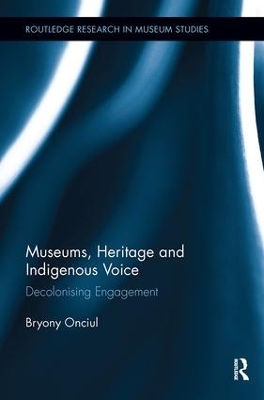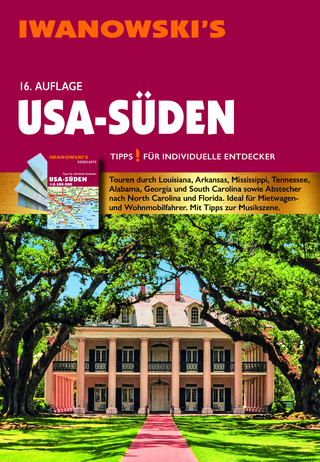
Museums, Heritage and Indigenous Voice
Decolonizing Engagement
Seiten
2017
Routledge (Verlag)
978-0-8153-4677-7 (ISBN)
Routledge (Verlag)
978-0-8153-4677-7 (ISBN)
Current discourse on Indigenous engagement in museum studies is often dominated by curatorial and academic perspectives, in which community voice, viewpoints, and reflections on their collaborations can be under-represented. This book provides a unique look at Indigenous perspectives on museum community engagement and the process of self-representation, specifically how the First Nations Elders of the Blackfoot Confederacy have worked with museums and heritage sites in Alberta, Canada, to represent their own culture and history. Situated in a post-colonial context, the case-study sites are places of contention, a politicized environment that highlights commonly hidden issues and naturalized inequalities built into current approaches to community engagement. Data from participant observation, archives, and in-depth interviewing with participants brings Blackfoot community voice into the text and provides an alternative understanding of self and cross-cultural representation.
Focusing on the experiences of museum professionals and Blackfoot Elders who have worked with a number of museums and heritage sites, Indigenous Voices in Cultural Institutions unpicks the power and politics of engagement on a micro level and how it can be applied more broadly, by exposing the limits and challenges of cross-cultural engagement and community self-representation. The result is a volume that provides readers with an in-depth understanding of the nuances of self-representation and decolonization.
Focusing on the experiences of museum professionals and Blackfoot Elders who have worked with a number of museums and heritage sites, Indigenous Voices in Cultural Institutions unpicks the power and politics of engagement on a micro level and how it can be applied more broadly, by exposing the limits and challenges of cross-cultural engagement and community self-representation. The result is a volume that provides readers with an in-depth understanding of the nuances of self-representation and decolonization.
Dr. Bryony Onciul is a Lecturer in Public History at the University of Exeter. She researches, teaches, and publishes in her areas of interests, including community engagement, indigenising and decolonising museology, identity and performance, understanding place, difficult histories, repatriation, truth and reconciliation, and the power and politics of representation.
List of figures Foreword Narcisse Blood, Kainai Blackfoot Elder Acknowledgements Participants Introduction 1. Authorizing History 2. The Blackfoot and Museums 3. Engagement Zones 4. Institutionalizing Relations 5. Decolonizing Representation 6. Community on Display 7. The Costs and Consequences of Engagement 8. Where To Go From Here: Conclusions Notes References Index
| Erscheinungsdatum | 29.12.2017 |
|---|---|
| Reihe/Serie | Routledge Research in Museum Studies |
| Zusatzinfo | 1 Tables, black and white; 3 Line drawings, black and white; 34 Halftones, black and white; 6 Illustrations, black and white |
| Verlagsort | New York |
| Sprache | englisch |
| Maße | 152 x 229 mm |
| Gewicht | 420 g |
| Themenwelt | Kunst / Musik / Theater ► Kunstgeschichte / Kunststile |
| Reisen ► Reiseführer ► Nord- / Mittelamerika | |
| Geisteswissenschaften ► Geschichte ► Hilfswissenschaften | |
| Geisteswissenschaften ► Geschichte ► Regional- / Ländergeschichte | |
| Sozialwissenschaften ► Ethnologie | |
| Sozialwissenschaften ► Soziologie ► Spezielle Soziologien | |
| ISBN-10 | 0-8153-4677-8 / 0815346778 |
| ISBN-13 | 978-0-8153-4677-7 / 9780815346777 |
| Zustand | Neuware |
| Haben Sie eine Frage zum Produkt? |


